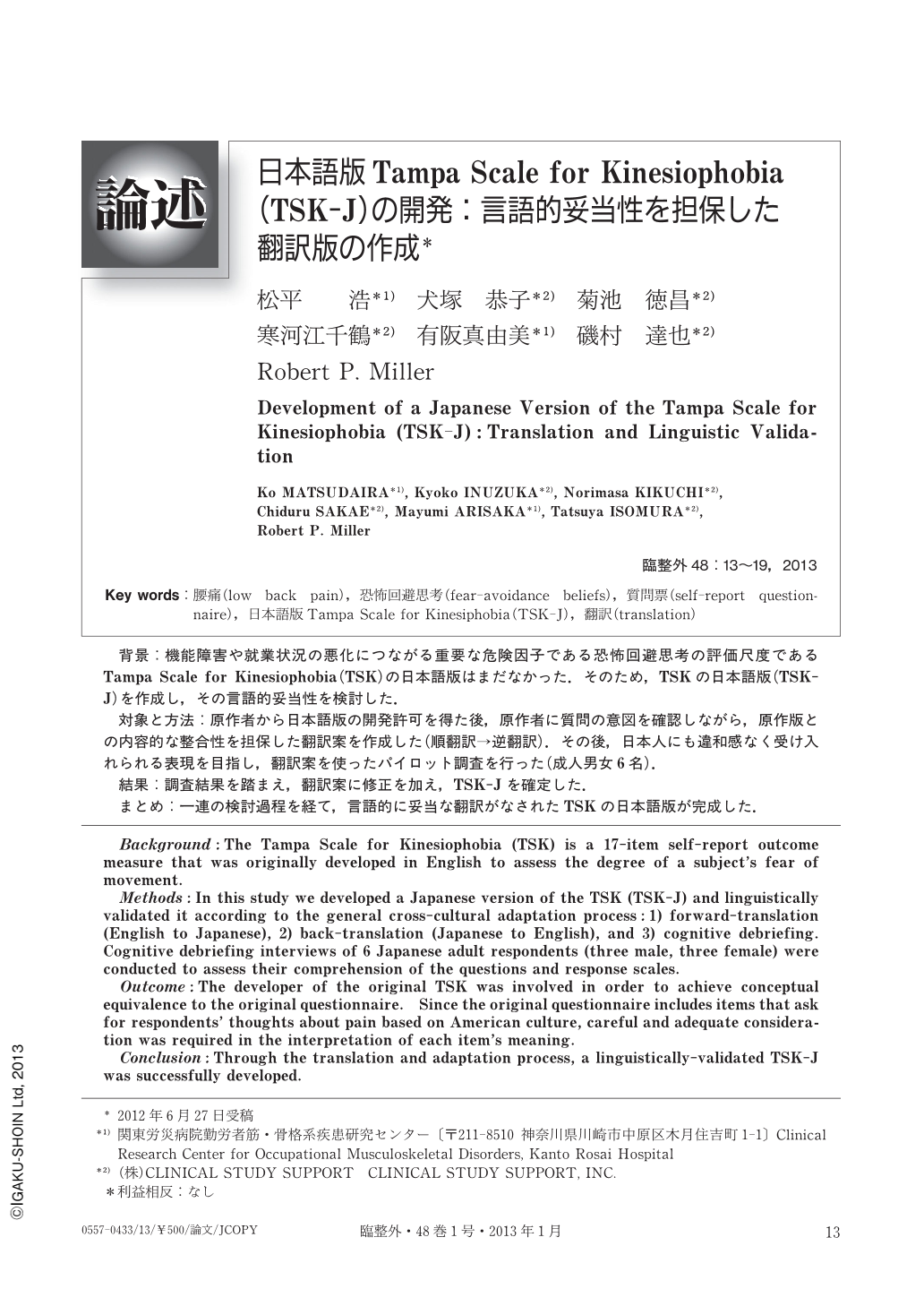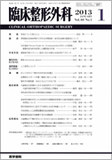Japanese
English
- 有料閲覧
- Abstract 文献概要
- 1ページ目 Look Inside
- 参考文献 Reference
- サイト内被引用 Cited by
背景:機能障害や就業状況の悪化につながる重要な危険因子である恐怖回避思考の評価尺度であるTampa Scale for Kinesiophobia(TSK)の日本語版はまだなかった.そのため,TSKの日本語版(TSK-J)を作成し,その言語的妥当性を検討した.
対象と方法:原作者から日本語版の開発許可を得た後,原作者に質問の意図を確認しながら,原作版との内容的な整合性を担保した翻訳案を作成した(順翻訳→逆翻訳).その後,日本人にも違和感なく受け入れられる表現を目指し,翻訳案を使ったパイロット調査を行った(成人男女6名).
結果:調査結果を踏まえ,翻訳案に修正を加え,TSK-Jを確定した.
まとめ:一連の検討過程を経て,言語的に妥当な翻訳がなされたTSKの日本語版が完成した.
Background:The Tampa Scale for Kinesiophobia (TSK) is a 17-item self-report outcome measure that was originally developed in English to assess the degree of a subject's fear of movement.
Methods:In this study we developed a Japanese version of the TSK (TSK-J) and linguistically validated it according to the general cross-cultural adaptation process:1) forward-translation (English to Japanese), 2) back-translation (Japanese to English), and 3) cognitive debriefing. Cognitive debriefing interviews of 6 Japanese adult respondents (three male, three female) were conducted to assess their comprehension of the questions and response scales.
Outcome:The developer of the original TSK was involved in order to achieve conceptual equivalence to the original questionnaire. Since the original questionnaire includes items that ask for respondents' thoughts about pain based on American culture, careful and adequate consideration was required in the interpretation of each item's meaning.
Conclusion:Through the translation and adaptation process, a linguistically-validated TSK-J was successfully developed.

Copyright © 2013, Igaku-Shoin Ltd. All rights reserved.


